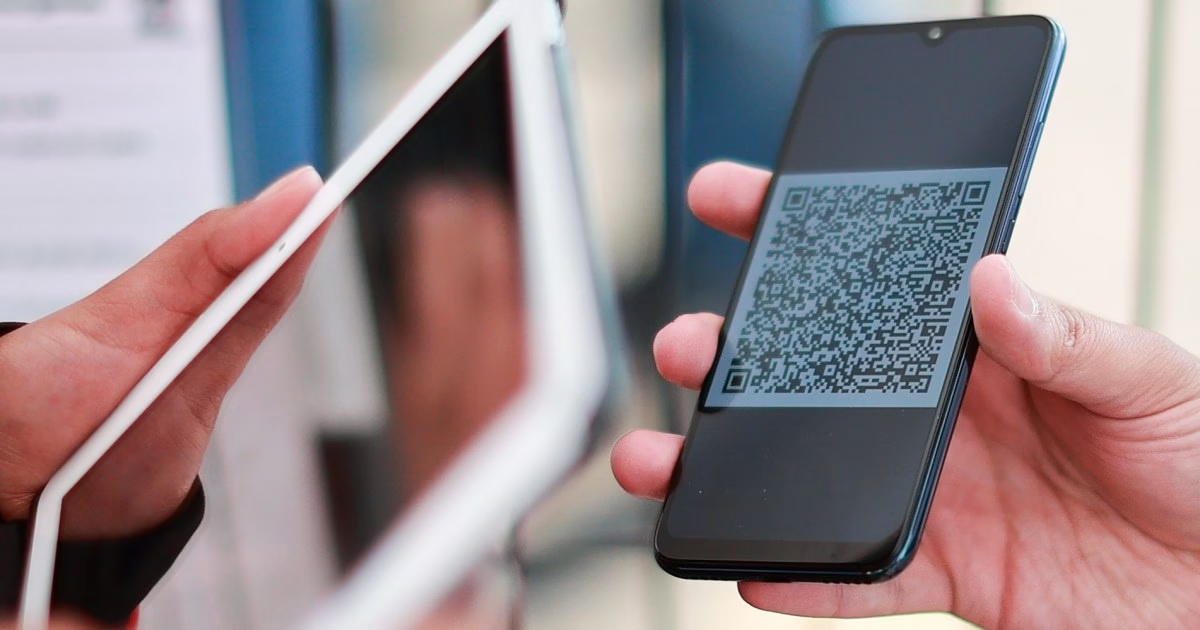
-
info@forensicss.com
Send Email
-
11400 West Olympic Blvd, Los Angeles, CA 90064
310-270-0598
Confidentiality Guaranteed
310-270-0598
Confidentiality Guaranteed
Blog Details
-
ForensicsS | Private Detective & Digital Forensics Investigation Experts > News > Uncategorized > ‘Quishing’ scams on the upward thrust as hackers spend QR codes to target patrons

Jul
‘Quishing’ scams on the upward thrust as hackers spend QR codes to target patrons
Private eye
QR codes were once a unusual novelty that caused a fun scan with the cellular phone. Early on, you may perchance well perchance well wish considered a QR code on a museum existing and scanned it to study extra concerning the eating habits of the woolly big or navy suggestions of Genghis Khan. One day of the pandemic, QR codes turned the default restaurant menu. Nonetheless, as QR codes turned a mainstay in extra urgent aspects of American life, from boarding passes to parking funds, hackers have exploited their ubiquity.
“As with many technological advances that begin with factual intentions, QR codes have extra and extra develop to be targets for malicious spend. Because they’re everywhere — from gas pumps and yard indicators to tv commercials — they’re concurrently helpful and unpleasant,” said Dustin Brewer, senior director of proactive cybersecurity products and companies at BlueVoyant.
Brewer says that attackers exploit these seemingly harmless symbols to trick people into visiting malicious websites or unknowingly portion deepest knowledge, a scam that has develop to be is named “quishing.”
The rising incidence of QR code scams caused a warning from the Federal Exchange Charge earlier this one year about unwanted or sudden programs exhibiting up with a QR code that after scanned “may perchance perchance well perchance take you to a phishing web online page that steals your deepest knowledge, enjoy credit ranking card numbers or usernames and passwords. It can perchance well perchance furthermore procure malware onto your cellular phone and give hackers entry to your tool.”
Issue and native advisories this summer have reached one day of the U.S., with the New York Department of Transportation and Hawaii Electric warning customers about averting QR code scams.
The enchantment to cybercriminals lies within the relative ease with which the scam operates: slap a faux QR code sticky label on a parking meter or a utility invoice rate warning and depend on urgency to device the comfort.
“The crooks are counting on you being in a bustle and likewise you wanting to device something,” said Gaurav Sharma, a professor within the division of electrical and pc engineering on the University of Rochester.
On the upward thrust as outmoded phishing fails
Sharma expects QR scams to amplify as the usage of QR codes spreads. Any other reason QR codes have increased in recognition with scammers is that extra safeguards have been place aside into situation to tamp down on outmoded e mail phishing campaigns. A gaze this one year from cybersecurity platform KeepNet Labs found that 26 p.c of all malicious links for the time being are sent by plan of QR code. Per cybersecurity firm, NordVPN, 73% of Americans scan QR codes with out verification, and extra than 26 million have already been directed to malicious sites.
“The cat and mouse game of safety will proceed and that folks will figure out solutions and the crooks will either figure out a formula spherical or scrutinize at other places where the grass is greener,” Sharma said.
Sharma is working to invent a “tremendous” QR code known as a SDMQR (Self-Authenticating Twin-Modulated QR) that has built-in safety to forestall scams. But first, he needs buy-in from Google and Microsoft, the corporations that beget the cameras and shield watch over the camera infrastructure. Companies placing their logos into QR codes isn’t a fix because it would trigger a unfounded sense of safety, and that criminals can on the total merely reproduction the logos, he said.
Some Americans are cautious of the rising reliance on QR codes.
“I’m in my 60s and don’t enjoy the usage of QR codes,” said Denise Joyal of Cedar Rapids, Iowa. “I with out a doubt difficulty about safety disorders. I surely don’t enjoy it when one is pressured to spend a QR code to take part in a promotion with no wrong formula to connect. I don’t spend them for entertainment-kind knowledge.”
Institutions are furthermore attempting to fortify their QR codes against intrusion.
Natalie Piggush, spokeswoman for the Children’s Museum of Indianapolis, which welcomes over 1,000,000 guests a one year, said their IT crew started upgrading their QR codes a few years ago to guard against what has develop to be an extra and extra valuable possibility.
“On the museum, we spend stylized QR codes with our emblem and colours versus the standard monochrome codes. We furthermore detail what customers can demand to scrutinize when scanning one of our QR codes, and we veritably gaze our existing QR codes for tampering or for out-of-situation codes,” Piggush said.
Museums are on the total much less susceptible than places enjoy put together stations or parking loads because scammers must web money from people expecting to pay for something. A patron at a museum is much less more likely to demand to pay, though Sharma said even in these settings, faux QR codes may perchance perchance well perchance even be deployed to set up malware on anyone’s cellular phone.
Apple, Android user trust is a project
QR code scams are more likely to hit both Apple and Android devices, but iPhone customers will be a chunk extra more likely to tumble sufferer to the crime, in step with a gaze achieved earlier this one year by Malwarebytes. Users of iPhones expressed extra trust in their devices than Android dwelling owners and that, researchers suppose, may perchance perchance well perchance trigger them to let down their guard. For instance, 70% of iPhone customers have scanned a QR code to begin or complete a buy versus 63% of Android customers who’ve achieved the the same.
Malwarebytes researcher David Ruiz wrote that trust will have an detrimental enact, in that iPhone customers device no longer surely feel the must commerce their conduct when making online purchases, and they’ve much less curiosity in (or may perchance perchance well perchance merely no longer study about) the usage of extra cybersecurity measures, enjoy antivirus. Fifty-5 p.c of iPhone customers trust their tool to shield them protected, versus 50 p.c of Android customers expressing the the same sentiment.
Low-investment, high-return hacking tactic
A QR code is extra unpleasant than a outmoded phishing e mail because customers on the total can’t study or test the encoded web address. Even supposing QR codes on the total encompass human-readable textual teach, attackers can alter this textual teach to deceive customers into trusting the hyperlink and the web online page it directs to. The glorious protection against them is to no longer scan unwanted or sudden QR codes and scrutinize for ones that issue the URL address whereas you scan it.
Brewer says cybercriminals have furthermore been leveraging QR codes to infiltrate crucial networks.
“There are furthermore credible reviews that nation-inform intelligence agencies have outmoded QR codes to compromise messaging accounts of navy personnel, frequently the usage of tool enjoy Assign that is furthermore begin to patrons,” Brewer said. Nation-inform attackers have even outmoded QR codes to distribute distant entry trojans (RATs) — a form of malware designed to operate with out a tool owner’s consent or knowledge — enabling hackers to attain stout entry to focused devices and networks.
Mute, one of many most unpleasant aspects of QR codes is how they’re share of the fabric of on a conventional basis life, a cyberthreat hiding in easy study about.
“What’s particularly referring to is that legit flyers, posters, billboards, or official documents may perchance perchance well perchance even be with out issues compromised. Attackers can merely print their very trust QR code and paste it physically or digitally over a exact one, making it with regards to no longer possible for the practical user to detect the deception,” Brewer said.
Rob Lee, chief of research, AI, and rising threats on the cybersecurity coaching focused SANS Institute, says that QR code compromise is factual one other tactic in a prolonged line of connected suggestions within the cybercriminal playbook.
“QR codes weren’t built with safety in mind, they were built to beget life more straightforward, which furthermore makes them very most attention-grabbing for scammers,” Lee said. “We’ve considered this playbook sooner than with phishing emails; now it factual comes with a smiley pixelated sq.. It’s no longer awe-noteworthy yet, but it’s precisely the kind of low-effort, high-return tactic attackers love to scale.”
Kevin Williams, CNBC
Kevin Williams is a journalist basically basically based in Ohio who veritably covers proper property, industry, politics, tech, and breaking info for the New York Cases and Washington Put up. Before that, he coated the Midwest for Al-Jazeera The US. Williams has written concerning the freight sector for Mack Truck’s Bulldog Journal.
Tags
- cybercrime email-fraud forensics|digital-forensics hacker Investigation malware malwarefraud online-scam online-scamphishing-attack private-detective scam|fraud private-eye cyber|cybersecurity private-eye phishing|phishing-attack private-investigator private-investigator hacking|hacker Quishing' Scams
Recent Posts
- Bond Rees Launches Cohabitation Investigation Provider to Reinforce Just and Monetary Cases
- Dwelling Republicans originate push to withhold Clintons in contempt of Congress over Epstein probe
- FBI’s Washington Submit Investigation Reveals How Your Printer Can Snitch on You
- Dignitas publicizes emergency subs following FBI and IgNar visa disorders
- We ran excessive-stage US civil war simulations. Minnesota is exactly how they birth | Claire Finkelstein
Recent Comments
Categories
Recent Posts



